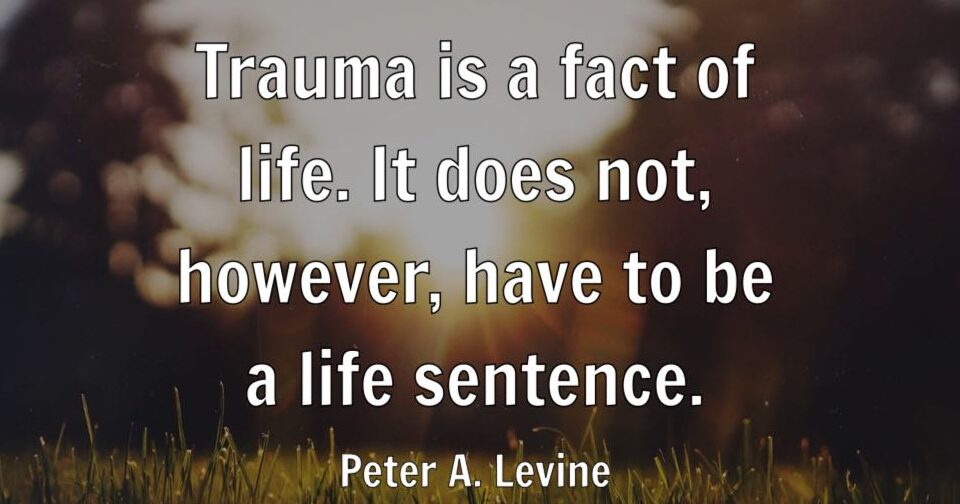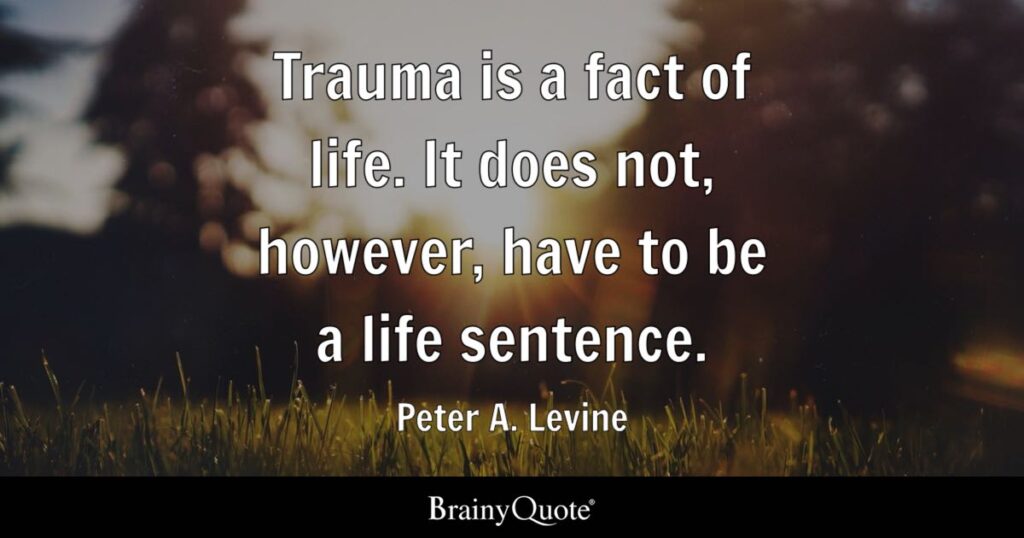People, mental health and trauma are not myths.
It is easy to get caught up in the pop psychology definition of trauma with all the memes and “self-diagnosis” content telling us we are traumatised.
But, are we traumatised?
What is trauma?
Trauma is defined as a deeply disturbing or distressing experience. It can look different for each of us.
Some of us may have had a short traumatic experience whereas some of us may have experienced some long-term trauma. The effects of trauma can be like the loud showcase reel and some effects lurk like background music, softly humming away.
It’s one thing to be aware that you have undergone some trauma, but realizing the invisible hold trauma can have on you is a completely different matter.
How trauma can manifest
Growing up, I felt out of place and never really belonged.
I operated from a space of not feeling like I was ever enough for the ones I loved. With those thoughts playing at the back of my mind, I would be extra hard on myself and my experiences seemed to confirm these negative self-thoughts.
“People do not like me.” , “I am stupid and will never amount to anything”, “XYZ was right, I am horrible.”
In other words, they did not feel like they were mere thoughts. They felt like the truth, screaming and questioning me through every word and action I said or took.
I would feel anxious, my heart pumping like it would jump out of my chest and sometimes, my vision would blur when I was stressed.
It did not look that way to others though. As far as they were concerned, I was happy with no problems, could achieve good grades and was pleasant to others.
At night though, I would spend many hours thinking about all the events that happened that day as I laid down on my bed. There was a big fear of being hurt by others, of letting them down. I’d imagine worst-case scenarios and it was too much to bear.
A coping mechanism I slipped into was dissociation, namely losing track of time, certain memories, my sense of identity, and feeling disconnected. It’s like feeling spacey: where you are floating through the days, but you are not fully present.
It was only later on that I learned that dissociation is something that happens to help numb your emotions. It can come up because maybe what happened to you was so traumatic that your brain and/or heart are under high stress and are unable to fully process.
Dissociation tries to block the trauma out to help you survive. It tends to happen more so when you are experiencing some prolonged trauma, like in the case of abuse survivors.
Check out this link for more info about trauma: https://www.verywellmind.com/common-symptoms-after-a-traumatic-event-2797496
What happens after we are traumatised?
When we go through trauma, we first feel broken and as though we have lost parts of ourselves.
We may be functioning well in society yet something does not feel quite right inside. It can feel like a void that you may never be able to fill up or like you will never be completely whole again.
That can also feel like a very lonely space to be in, one full of grief, possibly anger and sadness. Strong waves of emotions for the parts you lost without consent and control.
You may not even know if it is or ever would be fixable and there can be that sense of hopelessness, of feeling that no one will ever completely see and understand you. Like you are alone in this world.
Interestingly enough, a lot of people can live normal lives with the effects of trauma. Some can move on and some are fine until a triggering event happens.
For example, someone who may have been in an abusive relationship can be alright once out of that relationship. Yet, one day down the line, they may meet someone (who does not even need to be a romantic interest) who has certain characteristics of their abusive partner.
They may start to feel all the emotions or repeat certain thoughts and behaviors that they experienced during the time of the trauma. That person can feel overwhelmed and confused.
Some unhealed parts of the trauma pop up when we are overstretched or feel very vulnerable. When we are dealing with something that feels very new (or going far beyond our comfort zone), we subconsciously deal with it in the same way we did as kids (whenever we felt scared, threatened or highly uncomfortable)
It makes sense when you think about a person who explodes out of the blue. The observer may be thinking, “Wow, this guy is throwing a tantrum like a kid! What’s wrong with him/her?” .
Yet more often than not, there is always more to the story.
Can we heal from trauma?
For one, please know that if you have gone through trauma – what you feel is valid.
Your anger, grief, sadness, and actions may not make sense but it is very human and natural for us to feel these emotions. It is okay to hurt and feel broken; it does not make you any less of a person.
Experience has taught me that it is possible to heal from trauma. We can recover if we choose to take charge of that pain and turn it into something beautiful.
You can take your time with it, but do not leave it unhealed.
When we leave a gaping wound as it is, it brings more harm than good to ourselves and the ones we love around us.
What can we do to heal from trauma?
You may feel it is impossible and scared to open that box; scared of what you may find or learn. I have felt that fear too yet it is so very possible to loosen that invisible hold that trauma can have on us.
We can heal with the right resources, including:
- Being in the right environment – one which you can feel safe and accepted in
- Having boundaries – knowing and sticking with what you are okay or not okay with
- Knowing your triggers – sometimes it can feel like there is no triggering event, but it also helps when we are aware of the things that rattle us
- A good support system – people who see the best in you, who you do not have to perform for, your tribe
- Someone to work through the traumas with – whether that is someone who has gone through and rose like a phoenix from similar traumas, a support group, therapist or a clinical psychologist. If you feel confused or unsure about something you have gone through (whether it is traumatic or not), talk about it with them.
- Learning more about mental health – What we do not know scares us so it is great to educate ourselves. I went for this Mental Health First Aid (MHFA) course and it was great in helping me learn more about certain mental health symptoms and issues. You can read about my MHFA experience here: https://align-authenticity.com/my-mental-health-first-aid-experience/
Here are also some Trauma and PTSD Helplines in Malaysia: https://findahelpline.com/countries/my/topics/trauma-ptsd
Sometimes, all it takes is the first step.
If there’s one thing I wish someone had told me back then (when I was scared to face it), it would have been that healing from trauma is not as scary as it seems.
In an analogy, it’s like you have been dragging around a very heavy suitcase. We may have held on to the heaviness because we felt we needed it or just did not know what to do with it.
As we heal, we let go of some of the weight and set ourselves free. We end up feeling more excited (instead of frightened) about life and can start collecting more pleasant and lighter stuff for the suitcase.
You can choose what you want in that suitcase and I hope you feel more encouraged to start Marie Kondo-ing that trauma.
I believe in and am rooting for you.


